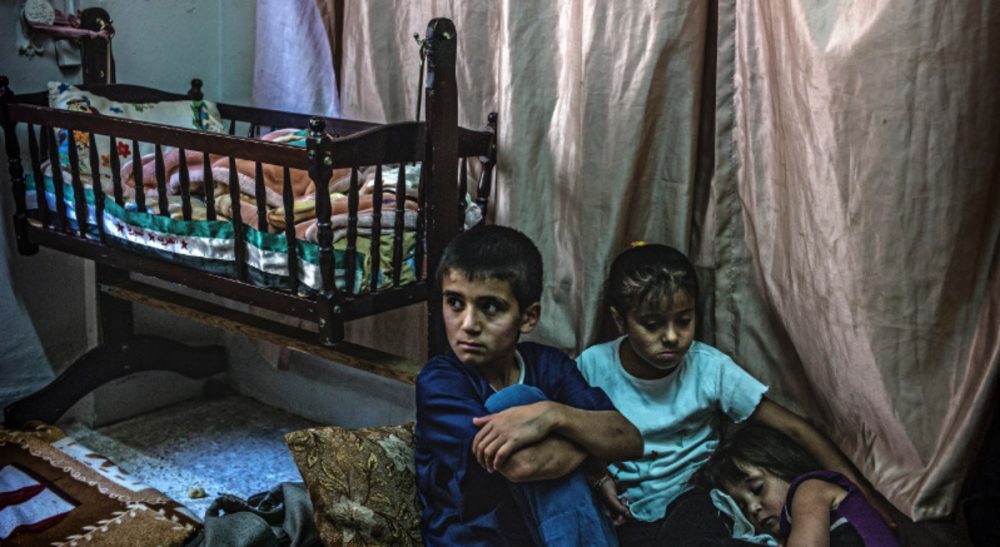Advertisement
For Syrian Refugees In Jordan, The Cellphone Is A Lifeline

We walked up two flights to a humble apartment in Amman, Jordan. It was mid-June and — in the low 80s — unusually cool for the time of year. We were there to meet an elderly man, Saleem, his wife, their daughter and their middle school-aged grandson, refugees from the conflict in neighboring Syria. We sat in a living room that was empty save some mattresses lined up against the walls. The couple, though happy to receive us, wept a little in embarrassment over their poor living conditions.
They might think twice before buying a fresh tomato, but they will spend what meager sums they have to purchase multiple SIM cards...
I was with two American researchers and an Arab priest in Amman meeting with Syrian refugees. I wanted to better understand how communication technologies — cellphones, in particular — are being used by displaced people to maintain contact with and receive information about the loved ones, homes and businesses they left behind. I spent my youth in Jordan, where my parents are from, and I also wanted to bear witness to the refugee crisis firsthand.
In an extended family of five, only one member, Saleem’s son, had paid work in Jordan. He had settled there first, and when Saleem and his family fled their home in Homs on September 11, 2012, they moved in with him. Saleem and his wife are unemployed, but they pay 200 Jordanian Dinars in rent. The United Nations High Commissioner for Refugees (UNHCR) provides the entire family with coupons to pay for food. A cellphone counts among their few possessions.
It was because of that cellphone that Saleem and his family learned that the large home they owned, paid for by a successful woodworking business, had been burglarized and burned.
Like so many of the refugees that I met in Amman, Saleem’s family considers their cellphone a necessity. They might think twice before buying a fresh tomato, but they will spend what meager sums they have to purchase multiple SIM cards, both Jordanian and Syrian, to ensure cheaper rates and clearer connections. Gone are the days when they used their phones merely to socialize. Now, the cellphone has become the primary bearer of bad news — family members and friends tortured or killed, towns shelled — and a source for information about services available to them in Jordan. All of it helps refugees feel that they have some shred of control over their lives.
...the cellphone has become the primary bearer of bad news -- family members and friends tortured or killed, towns shelled -- and a source for information about services available to them in Jordan.
But there is a risk in using their cellphones. Calls to Syria, the refugees told me, are monitored by the Syrian government. So they keep their calls short for more than economic reasons, and they rely on coded language. They never discuss the political situation or ask direct questions. When family that stayed behind ask in even a coded way if they should risk joining them in Jordan, there is always fear for their safety once they hang up.
I was struck by the lengths to which refugees will go in order to have access to a cellphone. One young mother who fled to Jordan with her infant daughter, aunt and two teenage cousins relies on what those boys earn collecting plastic trash in Amman for $4 a day. It’s child labor, and it's risky. But the money they bring in helps pay for calls to Syria once every three months.
More than 190,000 Syrians have been killed since the war began in March 2011, and millions more have been displaced. The situation in both Syria and the communities hosting refugees continues to worsen. Throughout this time of war, the cellphone fills a vacuum felt by Syrian refugees who are miles away from their homes and loved ones. It serves as a thread that helps tie their shattered lives together. For them, the cellphone is as vital to their survival as food, water and shelter.
Related:
